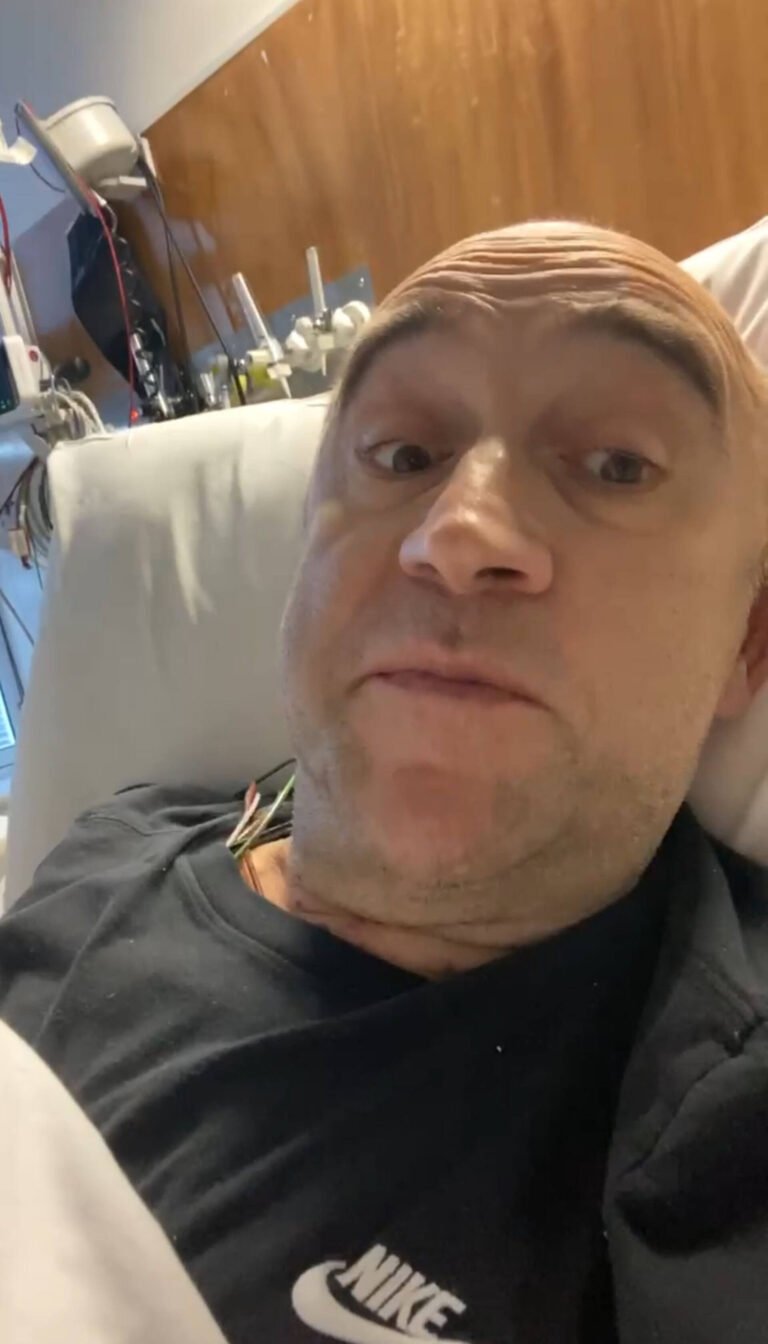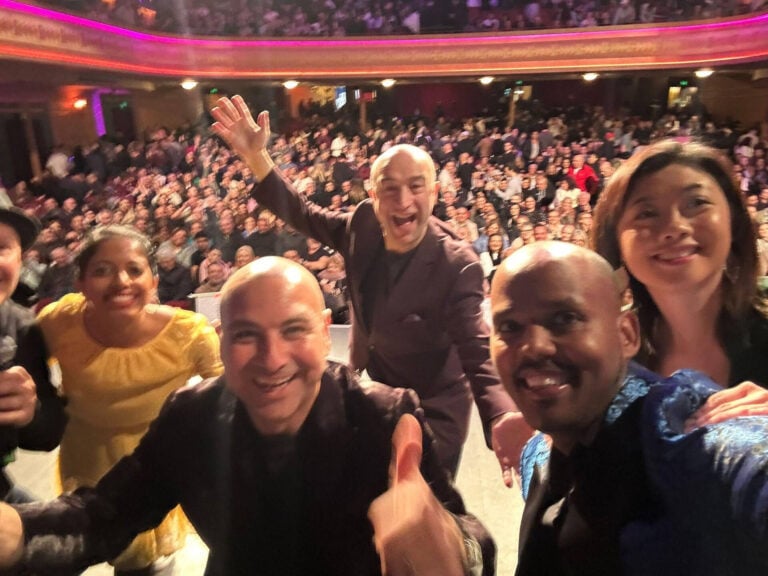Back in February, actor and comedian George Kapiniaris was working a four-week cruise ship when he noticed something wasn’t quite right with his body.
He had passed it off as the flu or COVID, but it was neither of those.
He’s also always had that feeling of indigestion, which he’d usually take a quick Nexium to ‘fix’.
But what was lying underneath was a lot more sinister.
A trip down to the medical centre on board saw his blood pressure was very high so he kept an eye on it over the next few weeks – noticing it would jump when he ate, showered and even when he went to the restroom.
About two weeks had passed and George felt that he was deteriorating and it wasn’t until he felt his heart beating very hard when eating a pizza that he thought something was definitely not right.
“I went down to the medical centre again and they did a blood test. They said ‘You’re not having a heart attack… but we can’t have you working on the ship this week. It’s too much of a risk, when you get home, go see a cardiologist’,” George told Neos Kosmos.

After doing a calcium test, it was found that his aorta was like really thick and that he needed surgery to replace it.
In fact it was 5.15cm and George was told above 5cm is dangerous and 5.5cm can be deadly – it eventually reached 5.3cm before his surgery.
“I was referred to a great cardiologist, a Greek guy, Arthur Nasis from Melbourne Heart, who calmed me down a little bit,” George said.
“He said ‘I’m a big fan of yours, I’ve come to a lot of your shows, I saw Life of Byron. I said ‘well, maybe that’s the last show you’re going to see me in’.
“His response was ‘no you’re here for me to fix you, it’s when you don’t go to the doctor’s when trouble happens.”
So George ended up being sent to a surgeon for his alarming predicament, which was especially more so given his father had died from heart problems.
That surgeon funnily enough was also Greek, Professor George Matalanis, who performed the procedure, replacing George’s aorta with a prosthetic one.
“There was a 10 per cent chance of dying, which was a bit of a shock when we heard that, my wife and I were sort of freaked out a little bit,” George said.
“I remember before the surgery going to church with my wife and just bawling my eyes out from the minute I opened the car door.
“I went in the church and the minute I went back to the car door, I cried the whole time.”
He said the one thing he has learnt is that it’s OK to be paranoid about your body.

“If you’re like the old-fashioned Greeks and don’t want to go to see the doctor because you think the doctor’s going to make you sick, that’s a big mistake.”
“If in doubt get checked out because it could be a life or death situation.”
George has since returned to doing what he loves, being on stage. Even when he was lying “half-dead” in hospital recovering he was thinking of new material and how to add this to his routine.
He called being on stage during rehab as “doctor stage” because there is nothing like it for him, being up there and hearing the audience.
A third of his routine now is about what happened, not entirely comedy, but also a serious conversation.
He said every show he’s done since his return, someone has come up afterward to thank him for talking about it because they’ve had a heart problem or know someone who has.
“In Liverpool, Sydney, a guy came up to me and he said ‘I can’t believe you’re on stage… I had my open-heart surgery like you three months ago and I still can’t lift a coffee cup’,” George said.
“Then he started crying and I gave him a big hug and said ‘I understand why you’re crying’ because you do get very emotional and sort of depressed after the surgery, you start thinking about yourself, life and death, and how close you come to it.
“What kept me going during this was I wanted to stay alive not for my career, not for my fame, not for my fortune but for my wife and sons.
“My father passed away and my brother was really young when that happened, my wife’s father, she was very young when he passed away, and I didn’t want to leave my kids, two teenage boys, without a father.”